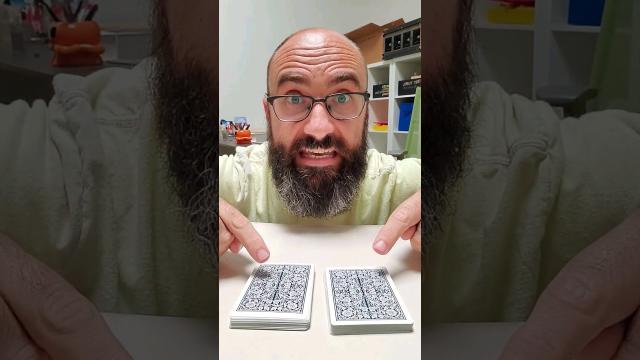Time Travel, Teleportation & Science
Time travel is the concept of moving between different points in time in a manner analogous to moving between different points in space, generally using a theoretical invention, namely a time machine. It has a commonly recognized place in philosophy and fiction, but has a very limited application in real world physics, such as in quantum mechanics or wormholes.
Although the 1895 novel The Time Machine by H. G. Wells was instrumental in moving the concept of time travel to the forefront of the public imagination, The Clock That Went Backward by Edward Page Mitchell was published in 1881 and involves a clock that allowed three men to travel backwards in time.[1][2] Non-technological forms of time travel had appeared in a number of earlier stories such as Charles Dickens' A Christmas Carol. Historically, the concept dates back to the early mythologies of Hinduism (such as the Mahabharata), Buddhism, and Islam through ancient folk tales. More recently, with advancing technology and a greater scientific understanding of the universe, the plausibility of time travel has been explored in greater detail by science fiction writers, philosophers, and physicists.
Teleportation, or Teletransportation, is the theoretical transfer of matter or energy from one point to another without traversing the physical space between them. It has a commonly recognized place in science fiction literature, film, and television, but as yet has a very limited application in real world physics, such as quantum teleportation or the study of wormholes.
Science (from Latin scientia, meaning "knowledge") is a systematic enterprise that builds and organizes knowledge in the form of testable explanations and predictions about the universe. In an older and closely related meaning, "science" also refers to a body of knowledge itself, of the type that can be rationally explained and reliably applied. A practitioner of science is known as a scientist.
In modern usage, "science" most often refers to a way of pursuing knowledge, not only the knowledge itself. It is also often restricted to those branches of study that seek to explain the phenomena of the material universe.
Source : Wikipedia
-
54:28
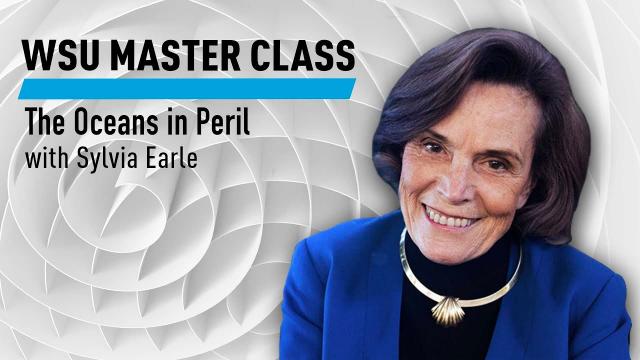
WSU: The Oceans in Peril with Sylvia Earle
Added 373 Views / 0 LikesExplore the challenges facing our oceans today, and why we should care. From industrial fishing to pollution to climate change, the damage to the seas risks becoming irreversible. Learn how we can still make a difference. #WorldSciUThis lecture was filmed
-
1:01:00
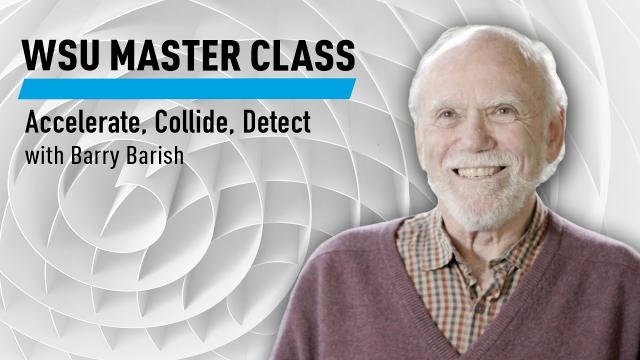
WSU:Accelerate, Collide, Detect with Barry Barish
Added 342 Views / 0 LikesParticle physics is a vibrant field entering into a period of profound discoveries. Nobel Laureate Barry Barish explores particle physics and examines the future of particle accelerators for pushing the limits of physics.This lecture was recorded on June
-
1:16:22

Your Brain On 34,000 Hours of Meditation: When Science and Tech Meet Spirituality
Added 32 Views / 0 LikesRichard Davidson, Karen Armstrong, and Kate Stockly, join Brian Greene to discuss the psychological and physiological impacts of sacred experiences, and how technology may make such experiences more readily available.This program is part of the Big Ideas
-
27:31
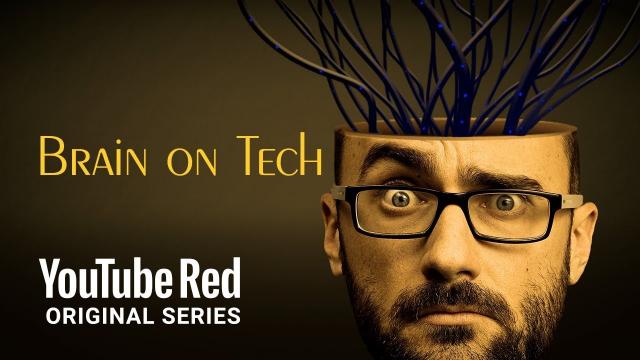
Your Brain on Tech - Mind Field S2 (Ep 4)
Added 926 Views / 0 LikesYour Brain on Tech - Mind Field S2 (Ep 4)
-
07:40
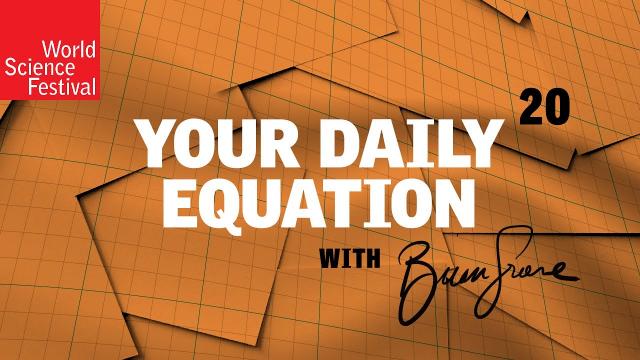
Your Daily Equation #20: 1,000,000,001 - 1,000,000,000 = 1
Added 525 Views / 0 LikesWhen matter meets antimatter, the particles annihilate. So, in our evolving universe why is there any matter left over? Today Brian Greene discusses the recent news of neutrino asymmetry found in the T2K experiment taking place in Japan. For an in-depth d
-
50:34
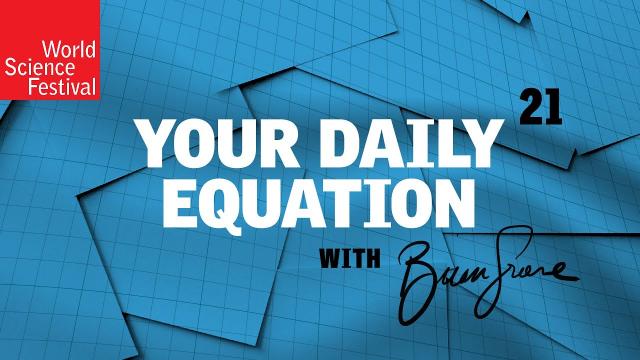
Your Daily Equation #21: Bell's Theorem and the Non-locality of the Universe
Added 472 Views / 0 LikesEpisode 21 #YourDailyEquation: Albert Einstein and his colleagues Podolsky and Rosen proposed a simple way to rid quantum mechanics of its most disturbing feature--called non-locality--in which an action undertaken here can affect the result of a measurem
-
12:24
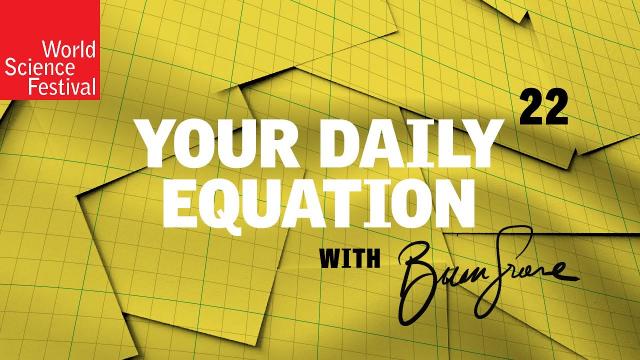
Your Daily Equation #22: 8 - 2 ÷ 2 x 3 + 4 = ?
Added 492 Views / 0 LikesEpisode 22 #YourDailyEquation: Simple arithmetic problems go viral with people proposing all sorts of different answers. It speaks to an important concept--the order of various operations matters--but, as Brian Greene discusses, is often taught in a less-
-
29:23
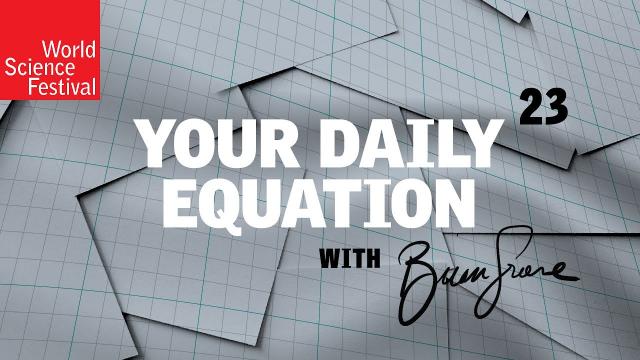
Your Daily Equation #23: Deriving Classical from Quantum Physics: Ehrenfest's Theorem
Added 447 Views / 0 LikesEpisode 23 #YourDailyEquation: Classical and Quantum Physics describe reality in completely different ways. Yet, in 1927, Paul Ehrenfest showed how Newton's equation could be derived from Schrödinger's, establishing a deep continuity in our understanding
-
38:08
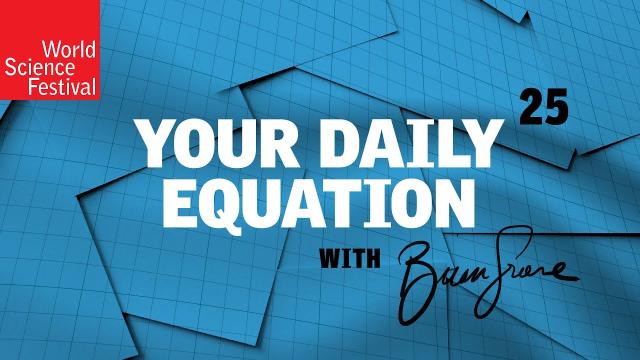
Your Daily Equation #25: Noether's Amazing Theorem: Symmetry and Conservation
Added 513 Views / 0 LikesEpisode 25 #YourDailyEquation: In 1918, the phenomenal German mathematician Emmy Noether discovered a deep link between symmetries and conserved quantities, which has proven to be one of the most influential mathematical results in the development of phys
-
34:40
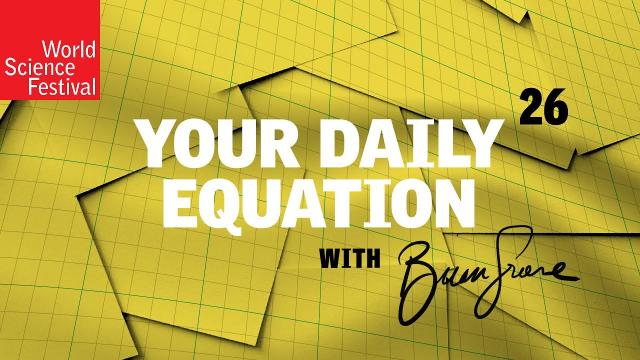
Your Daily Equation #26: Einstein's General Theory of Relativity: The Essential Idea
Added 539 Views / 0 LikesEpisode 26 #YourDailyEquation: Albert Einstein's General Theory of Relativity, phrased in terms of warps and curves in space and time, provides our most refined description of the gravitational force. Join Brian Greene for a visual exploration of Einstein
-
29:54
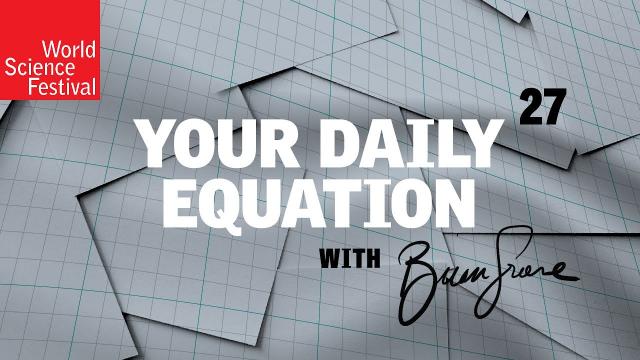
Your Daily Equation #27: Curvature and Parallel Motion
Added 381 Views / 0 LikesEpisode 27 #YourDailyEquation: In his general theory of relativity, Einstein described gravity in terms of the curvature of space and time. Join Brian Greene for an introduction to the mathematics of curvature, which Einstein used to fashion his gravitati
-
48:26
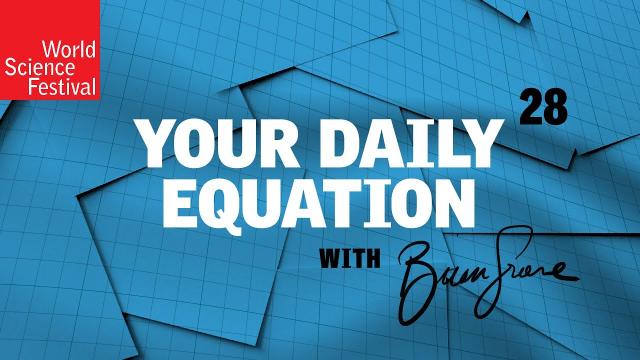
Your Daily Equation #28: Einstein, The Big Bang, and the Expansion of the Universe
Added 493 Views / 0 LikesEpisode 28 #YourDailyEquation: Shortly after Einstein published his new theory of gravity, his general theory of relativity, researchers realized that it predicted that the universe should expanding--a prediction subsequently confirmed by astronomical obs
-
27:00
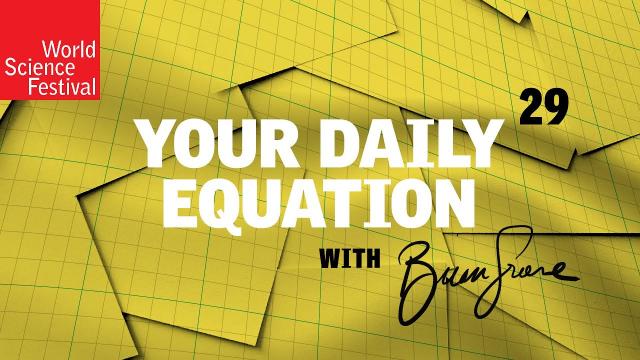
Your Daily Equation #29: Repulsive Gravity, Dark Energy, and Accelerated Expansion
Added 469 Views / 0 LikesEpisode 29 #YourDailyEquation: One of the greatest surprises in the past few decades is the discovery that the expansion of space is speeding up. Join Brian Greene for a discussion of our best explanation: gravity can be repulsive and can thus drive the d
-
37:00
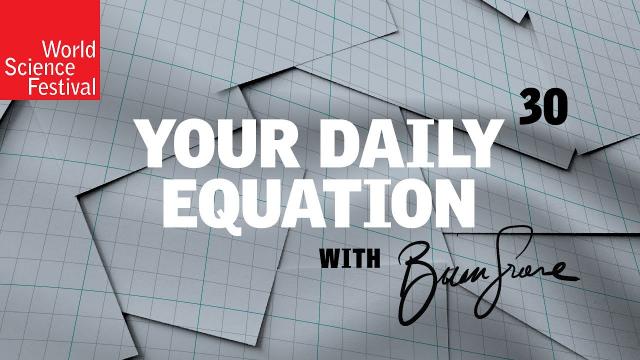
Your Daily Equation #30: What Sparked the Big Bang?
Added 506 Views / 0 LikesEpisode 30 #YourDailyEquation: Even after astronomical observations convinced Einstein that the universe is expanding there remained the question of what drove the universe to expand in the first place--that is, what sparked the Big Bang. Join Brian Green
-
41:36
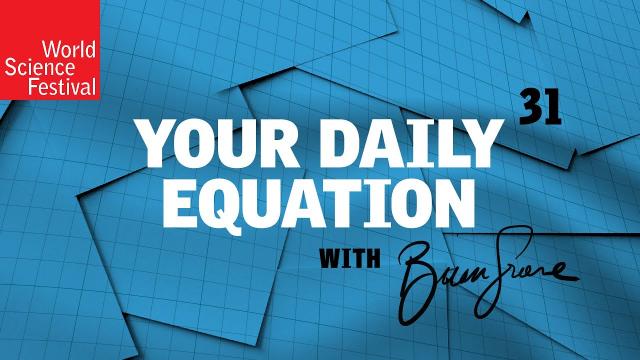
Your Daily Equation #31: BLACK HOLES: And Why Time Slows Down When You Are Near One
Added 425 Views / 0 LikesEpisode 31 #YourDailyEquation: Shortly after Einstein wrote down his new equations for gravity--his general theory of relativity--a German mathematician found the first exact solution. And within that solution physicists realized that a strange new entity
-
44:28
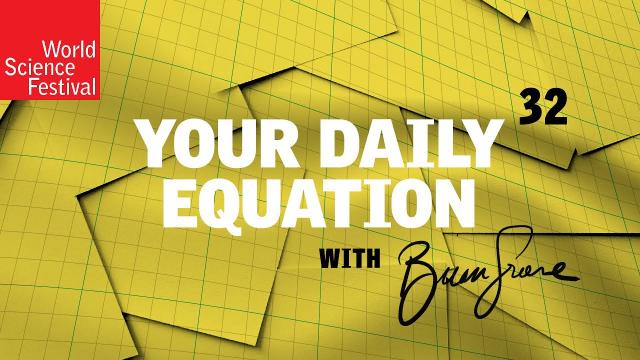
Your Daily Equation #32: Entropy and the Arrow of Time
Added 406 Views / 0 LikesEpisode 32 #YourDailyEquation: Einstein referred to entropy and the second law of thermodynamics as the only insights into the workings of the world that would never be overthrown. Join Brian Greene as he explores how these concepts illuminate the differe
-
25:17
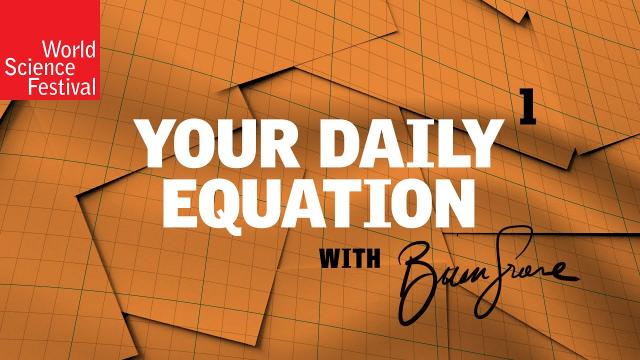
Your Daily Equation | Episode 01: E = mc2
Added 621 Views / 0 LikesEpisode 01: Brian kicks off #YourDailyEquation with Albert Einstein's famous equation E = mc2.If you have a favorite equation that you'd like Brian to discuss next time, be sure to let him know in the comments below. Monday – Friday at 3pm EDT, Brian will

